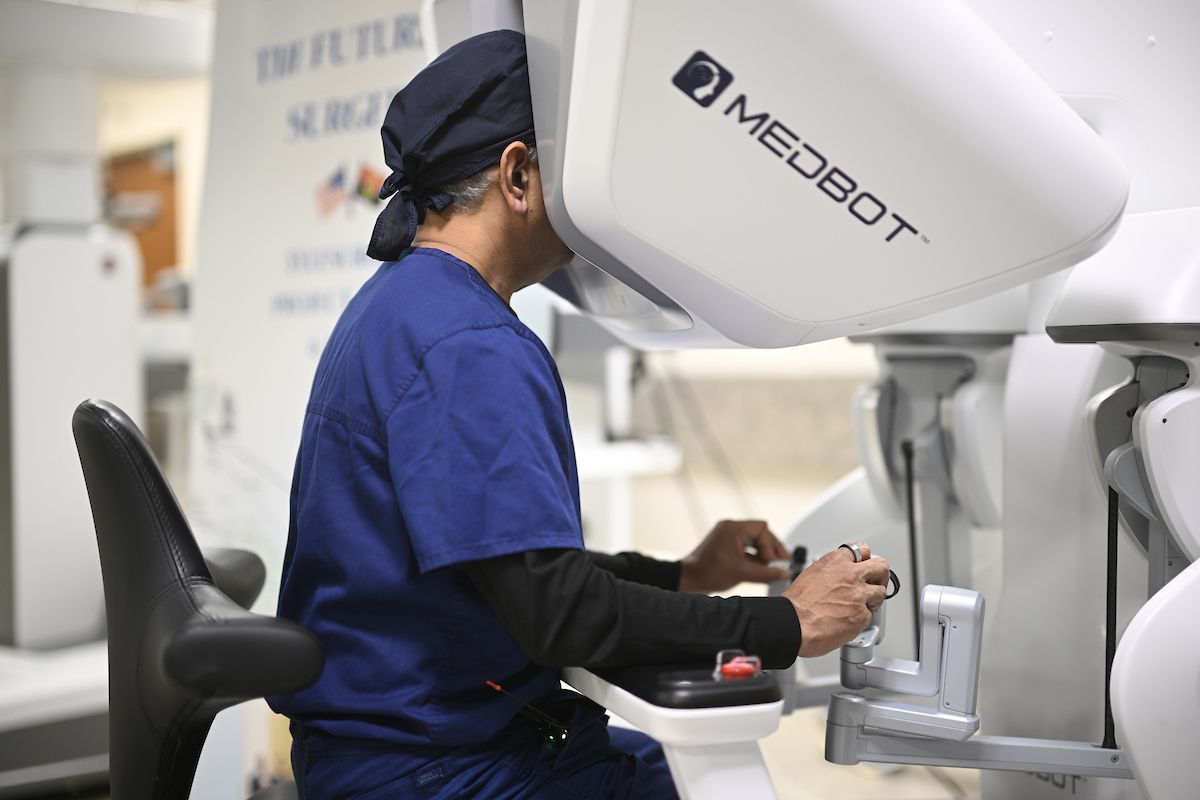
In a medical first, a doctor in Florida performed a remote prostatectomy to remove cancer from a man 7,000 miles away in Africa, ABC News reports.
In March, Fernando da Silva, 67, who lives in the southern African nation of Angola, was diagnosed with prostate cancer, and in June, he underwent a remote prostatectomy to remove the cancer, making him the first patient to be operated on via transcontinental robotic telesurgery.
“We’ve been working on this really for two years,” Vipul Patel, MD, the medical director of Orlando’s Global Robotic Institute at Advent Health, who performed the surgery, told ABC. “We traveled the globe, looking at the right technologies.”
Patel performed the prostatectomy, a surgical procedure during which part or all of the prostate is removed, on da Silva using Toumai® robotic surgery system.
Although da Silva was the first patient in this clinical trial testing remote robotic surgery, this was hardly Patel’s first robotic prostatectomy—he has performed the procedure over 20,000 times.
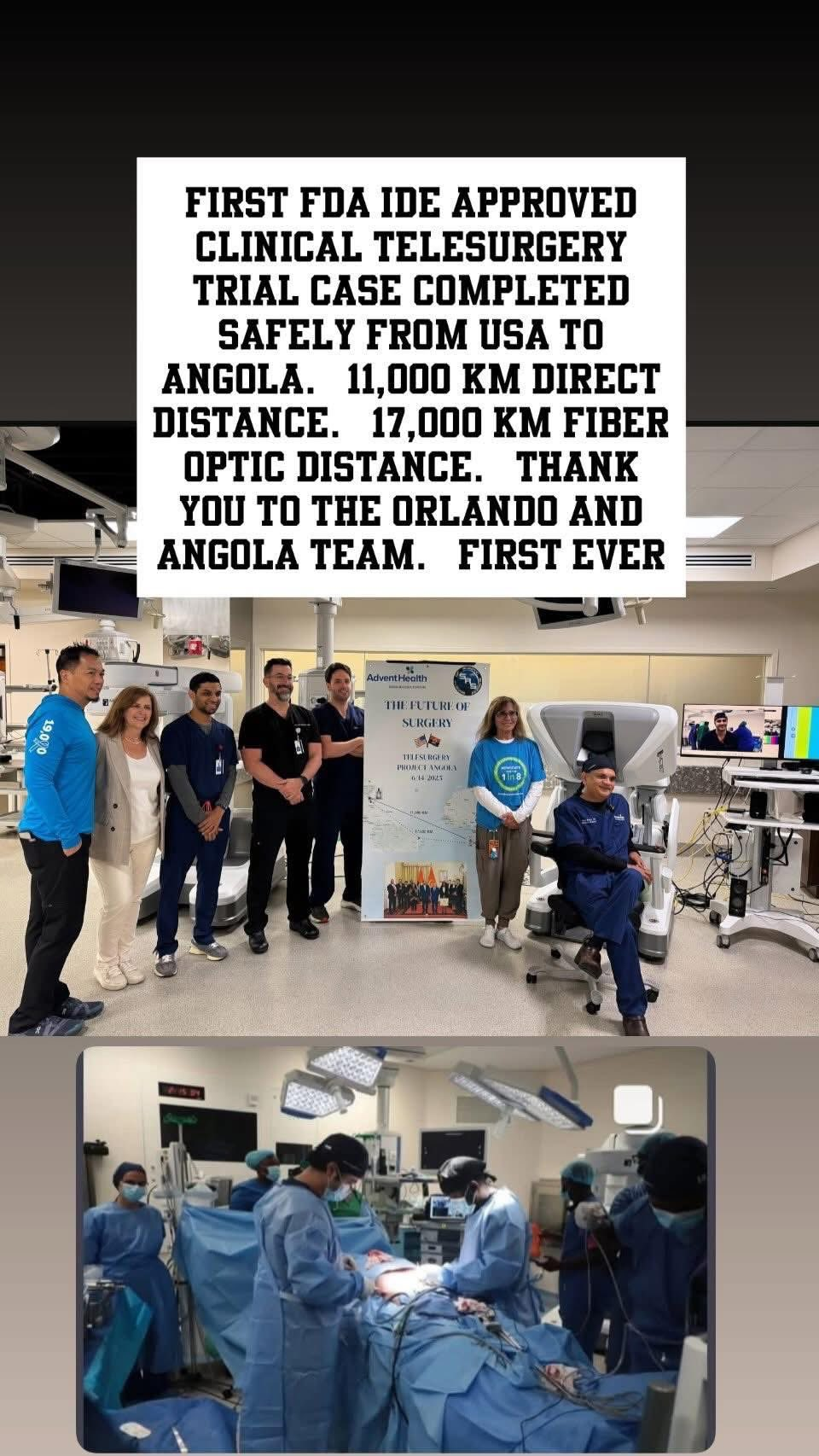
Approved by the U.S. Food and Drug Administration (FDA), Toumai® robot used features enhanced visuals and nimble controls that make the procedure less invasive and more precise, according to ABC. (The procedure also requires less recovery time.) Patel said he had a surgical team in the operating room in Angola in case any issues, such as a loss of telecommunications, arose.
Prostate cancer accounts for nearly 25% of all cancer cases diagnosed in Africa. Patel emphasized that resident of rural areas throughout the world that lack access to care could benefit from such remote procedures.
“I think the humanitarian implications are enormous,” Patel said. “Internationally, obviously, there’s so many underserved areas of the world.”
He added that remote surgeries could also be useful to U.S. patients if complications arise during surgery or transit to a hospital.
“Emergency room physicians will have technology that can be remotely accessible to surgeons, maybe even in the ambulance, where people can get remote interventions if they can’t make it to the hospital,” Patel said.
Patel will submit data from the successful surgery to the FDA for review in hopes that he will be able to perform more telesurgeries in the future.
“It was a small step for a surgeon, but it was huge leap for health care,” he said.
-
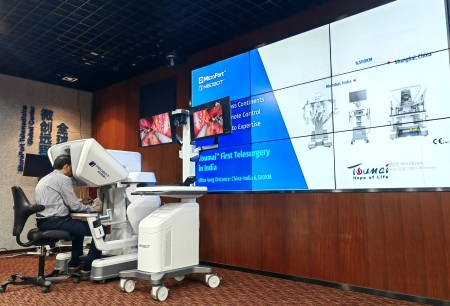 2026-01-06Toumai® Remote Surgical System Now Approved in Nearly 10 Countries, Reaching Over 40% of the Global Population
2026-01-06Toumai® Remote Surgical System Now Approved in Nearly 10 Countries, Reaching Over 40% of the Global Population -
 2025-12-24Toumai® Becomes the First Chinese Surgical Robot to Achieve the Milestone of 100 Commercial Installations
2025-12-24Toumai® Becomes the First Chinese Surgical Robot to Achieve the Milestone of 100 Commercial Installations -
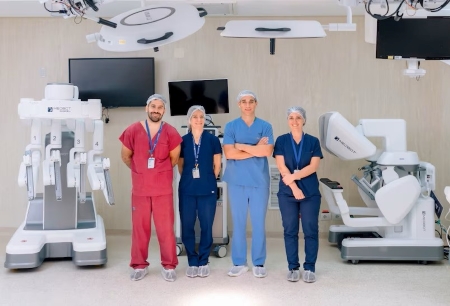 2025-12-05Toumai®-Assisted Robotic Ovarian Tissue Autotransplantation Successfully Performed for the First Time in Argentina
2025-12-05Toumai®-Assisted Robotic Ovarian Tissue Autotransplantation Successfully Performed for the First Time in Argentina


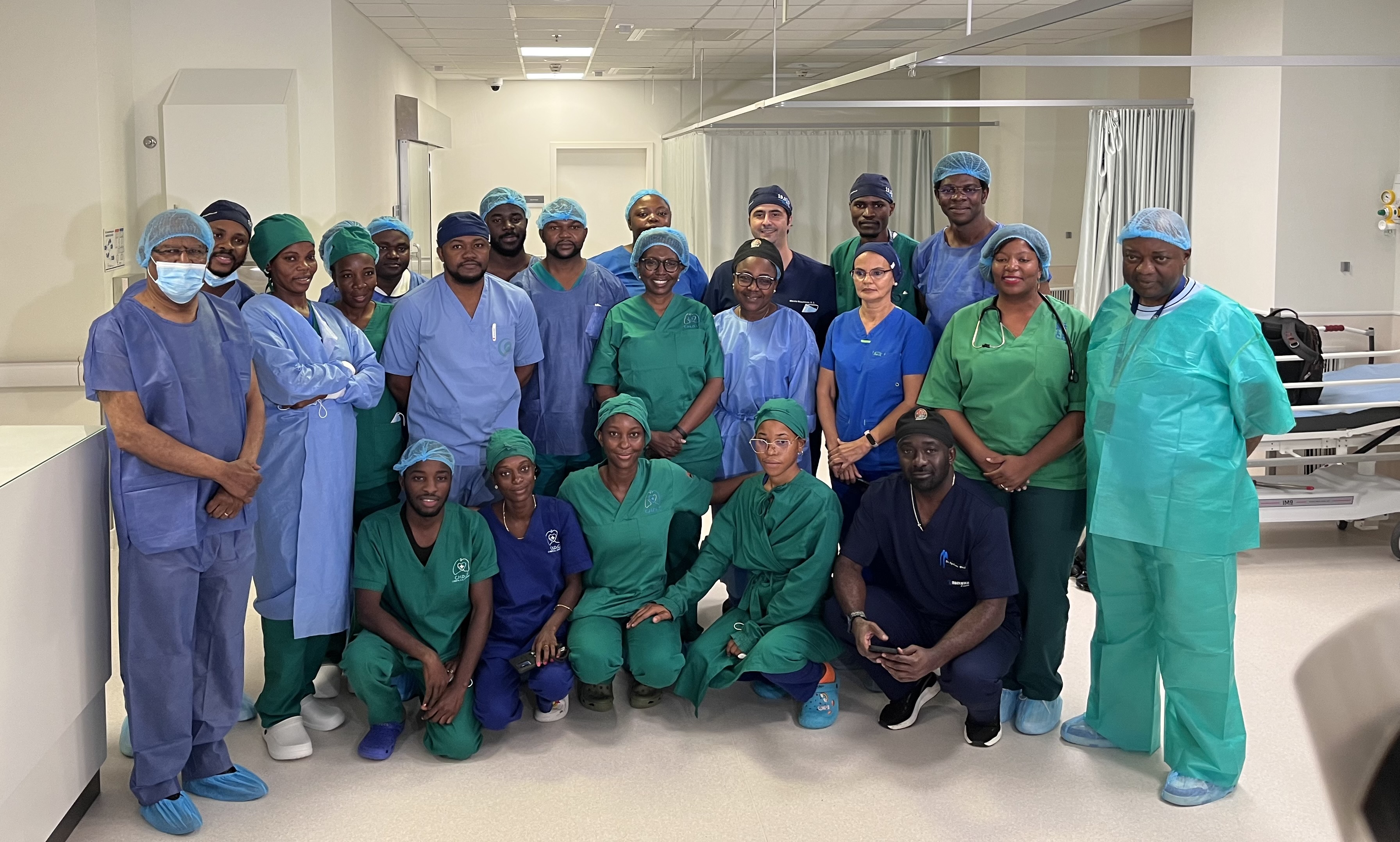




 Hu ICP Bei No. 20013662 HGWA Bei No. 31011502015178
Hu ICP Bei No. 20013662 HGWA Bei No. 31011502015178 " are registered trademarks of Shanghai MicroPort Medical (Group) Co., Ltd.” . They have been authorized to be used by Shanghai Microport Medbot (Group) Co., Ltd., and no other party shall use such trademarks without prior written permission thereof.
" are registered trademarks of Shanghai MicroPort Medical (Group) Co., Ltd.” . They have been authorized to be used by Shanghai Microport Medbot (Group) Co., Ltd., and no other party shall use such trademarks without prior written permission thereof.
